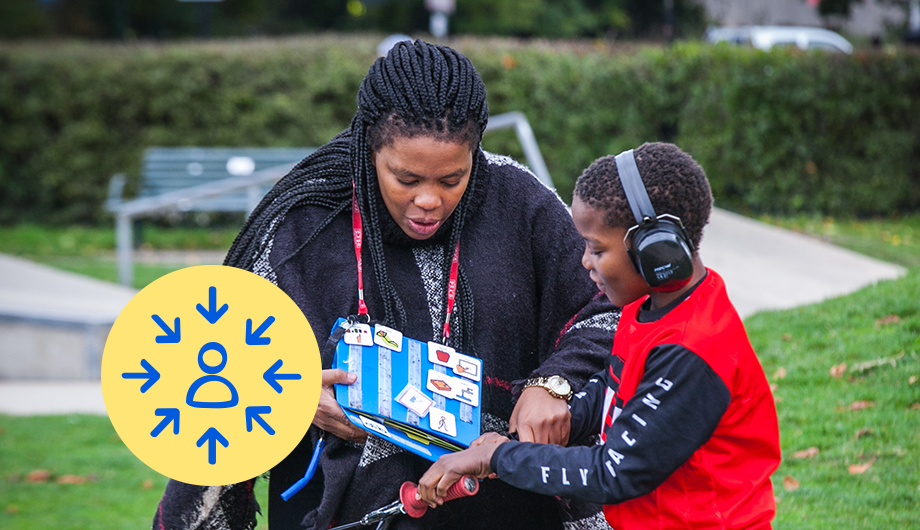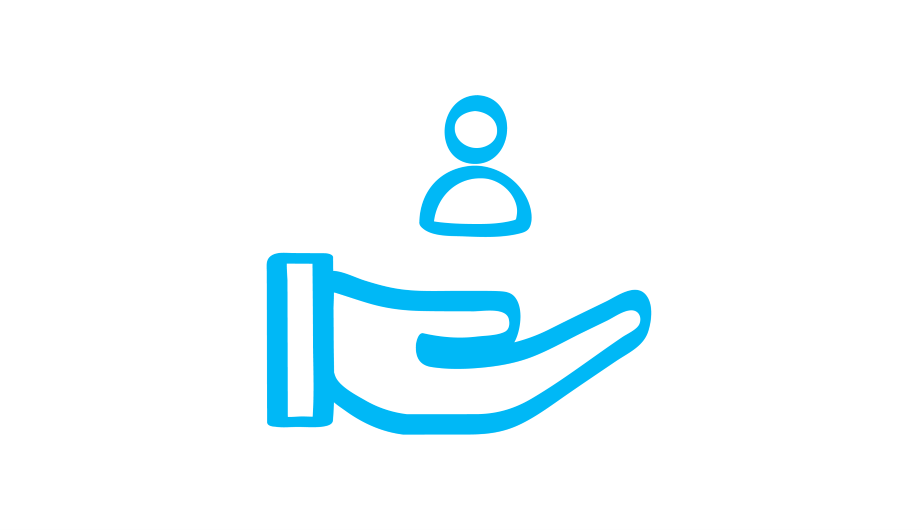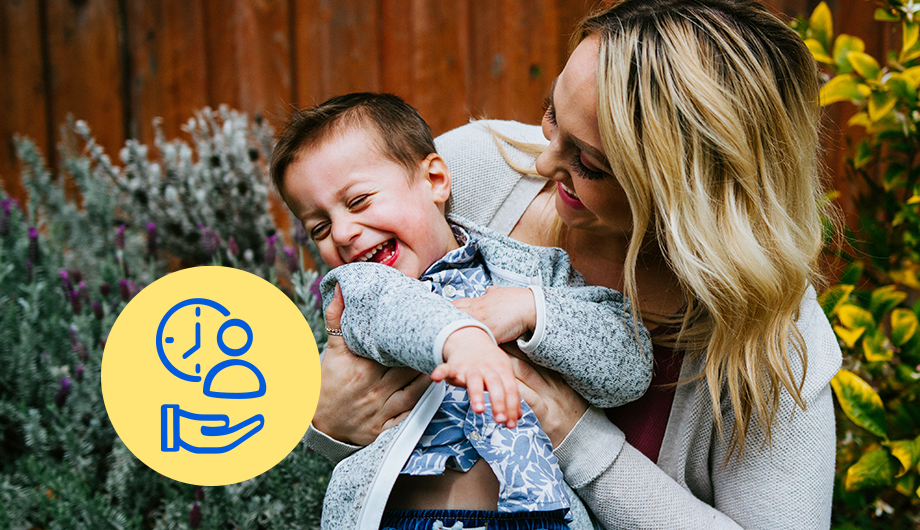
Person-centred Support
Positive Behaviour Support (PBS) is a person-centred approach to supporting people with a learning disability. We offer information resources about PBS and suggest where to find out more.

The Community Key Working for Children and Young People pilot project aimed to provide support to families via Peer Support Workers following their discharge from the keyworking service. Read more about The CBF's involvement in this project.
What is a Keyworker?
In 2017, Dame Christine Lenehan, published a report called “These are our Children“. In the report she recommended the introduction of keyworkers to stop autistic children and children with learning disabilities with complex needs being lost in the system and to ensure that parents are informed at all points and can make informed choices on all the available evidence.
In 2020 the Black Country Healthcare NHS Foundation Trust were one of seven areas selected by NHS England to pilot key working for children and young people with learning disabilities and/or autism who are at risk of being admitted to or receiving inpatient care.
A keyworker is a paid professional whose role is to make sure children and young people and their families are fully involved and informed in planning support and services and the decisions that are being made around them. They work closely with the person and family to help navigate the system to access the support they need from education, health and social care and ensure their plans are personalised to meet their individual needs. For this pilot, the children and young people eligible to receive this support had been admitted to an inpatient or were at risk of being admitted to an inpatient unit.
In the Black Country an additional Peer Support team has also been developed to complement and enhance the keyworker scheme.
What is a Peer Support Worker?
A Peer Support Worker is a person with lived experience of caring for a relative with a learning disability and/or who is autistic e.g. a parent or sibling.
They are trained to provide active listening and proactive and regular contact with families, with a role providing listening ear support as well and signposting to universal and specialist services in the local area. A Peer Support Worker is introduced to the family before their discharge from keyworking, and they remain with them for around 12 weeks depending on individual need.
CBF’s Involvement
CBF were involved in:
The Peer Support Network was operated by Dudley Voices for Choice until November 2023 when it transferred to Black Country NHS Foundation Trust.
Evaluation of the Peer Support Network
The CBF has carried out two evaluations of the Peer Support service. These evaluations reported that family carers felt more listened to and understood, more in control and more hopeful after receiving family peer support.
A family carer taking part in a video case study commented:
“The Keyworker and Family Peer Worker were able to talk to both of us and understand how we were feeling. But it gave us a wider understanding that we were not alone and there is someone to listen to. It gave us that grounding and initial understanding and helped us cope with ourselves before we could start helping our son and helping the family” – Family carer.
The evaluation also found that family carers benefitted from signposting to local services and support:
“The peer support worker would work with us and understand what the family needed as a whole. They would come back with groups, workshops and activities that were available in the local area. Dudley MAD (Men with Anxiety & Depression) was an organisation that was great for me.”- Family carer.
The family carers who received the service would recommend the service to other families:
“It was just so nice to have someone to talk to, both my Keyworker and Family Peer Worker, but especially my Family Peer Worker, who could relate to what was happening and offer that support and just someone to talk to say, you know this this has happened. You don’t have friends and family that have been through this situation to help you with it, so it’s been invaluable”– Family carer.
Good Practice Case Study
The keyworker pilot in the Black Country was identified as a good practice case study for Integrated Care Boards (ICBs) in the Statutory Guidance on Working with People and Communities in 2022. In particular, the co-production with children, young people and families was central to the success of the project. Co-production was in place from start and present throughout the strategic and operational levels of the creation of both the keyworker and peer support worker roles.
You can find the case study here.

Positive Behaviour Support (PBS) is a person-centred approach to supporting people with a learning disability. We offer information resources about PBS and suggest where to find out more.

The CBF's 'Getting it right' project helps improve both national and local information and support for children and adults with severe learning disabilities and their families.

The CBF has undertaken projects and produced resources showing how early intervention using methods, such as Positive Behaviour Support, can reduce the severity and frequency of challenging behaviour and improve quality of life.